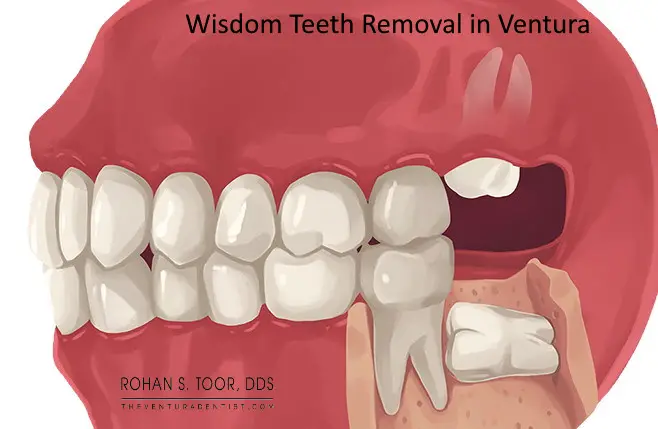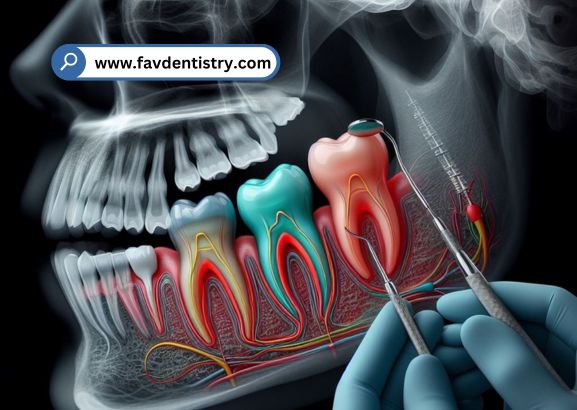Last Updated on 3 weeks by Dr. Michelle G. Brito
The benefits of keeping wisdom teeth include improved chewing ability and maintaining the structure of the jawbone. When wisdom teeth are properly aligned and have enough space to grow, they can function like any other molars in the mouth, contributing to efficient eating and digestion.
Additionally, the presence of wisdom teeth can help support the surrounding teeth, preventing shifting and potential oral health issues. However, wisdom teeth that are impacted or causing pain should be evaluated by a dentist to determine the best course of action.
It is important to regularly visit a dentist for check-ups and professional advice on maintaining oral health. Removing wisdom teeth is a common dental procedure if they pose a risk to overall oral well-being.
Understanding Wisdom Teeth
Wisdom teeth are the third set of molars that typically develop between the ages of 17 and 25. They are vestiges from our ancestors who needed to chew tough and fibrous food. However, in modern times, these teeth often cause problems.
They may become impacted, causing pain and swelling. Since wisdom teeth are no longer necessary, dentists often recommend removing them to prevent future complications. The removal process is typically quick and straightforward, although recovery may take a few days. Some people may have their wisdom teeth come in without any issues, but for many, removal is the best option.
Dentists can provide guidance and advice based on each individual’s unique situation. So, understanding wisdom teeth and their benefits can help individuals make informed decisions about their oral health.
The Myths And Misconceptions
Keeping wisdom teeth can have surprising benefits, despite the common misconceptions and myths surrounding them. Contrary to popular belief, wisdom teeth do not always need to be removed. Debunking the need for extraction, it is essential to understand that not everyone experiences problems with their wisdom teeth.
In fact, for some individuals, these extra molars can function properly and serve a practical purpose in chewing and grinding food. Additionally, the eruption of wisdom teeth does not always result in crowding or shifting of other teeth. Therefore, it is crucial to consult with a dental professional to determine whether wisdom teeth extraction is truly necessary.
By debunking the misconceptions and evaluating individual cases, we can approach the decision with a better understanding of the benefits of keeping wisdom teeth.
The Surprising Health Benefits Of Keeping Wisdom Teeth
Wisdom teeth are not just pesky appendages; they actually have surprising health benefits. They contribute to a stronger jaw by supporting the structure and alignment of the surrounding teeth. This, in turn, improves facial aesthetics and symmetry. Wisdom teeth also play a crucial role in dental health by aiding in natural alignment and preventing overcrowding.
Additionally, they support the effectiveness of chewing, allowing for better digestion and nutrient absorption. Furthermore, keeping wisdom teeth may have a positive impact on overall health, as research suggests a reduced risk of certain diseases, possibly due to an improved immune system.
So, before rushing to remove your wisdom teeth, consider the potential benefits they bring.
Factors To Consider
Factors to consider when evaluating the condition of wisdom teeth include assessing their alignment and angle of eruption, monitoring for signs of impaction or infection, and understanding the potential issues and complications that may arise. Impacted wisdom teeth can cause discomfort and may require extraction, while infections and decay can result in further oral health problems.
Consulting with a dental professional is recommended to seek advice on whether wisdom teeth should be retained or removed. Each case is unique, and determining the best course of action for individual situations is crucial. By carefully considering these factors, individuals can make informed decisions about the retention or removal of their wisdom teeth, ensuring optimal oral health.
Alternative Approaches To Wisdom Teeth Management
Keeping wisdom teeth can provide several benefits when managed with alternative approaches such as orthodontic interventions. Braces or aligners can be used to accommodate the presence of wisdom teeth by shifting teeth and creating space. Dental hygiene and preventive measures play a crucial role in maintaining the health of wisdom teeth.
Adopting proper oral care techniques like regular brushing, flossing, and rinsing can prevent potential issues. Regular dental check-ups and cleanings are essential to identify any problems early on. Symptom management and pain relief are necessary to address discomfort or swelling associated with wisdom teeth.
Over-the-counter and prescribed medications can help manage these symptoms effectively. By implementing these approaches, people can experience the benefits of keeping their wisdom teeth while ensuring optimal oral health.
Frequently Asked Questions On Benefits Of Keeping Wisdom Teeth
Why Should I Keep My Wisdom Teeth?
Keeping your wisdom teeth can be beneficial if they are healthy and properly aligned. Wisdom teeth can help with chewing and maintaining the alignment of your other teeth. However, if they are causing pain, infections, or other issues, it may be necessary to have them removed.
What Are The Risks Of Removing Wisdom Teeth?
While wisdom tooth removal is a common procedure, there are risks involved. These can include infection, nerve damage, bleeding, and dry socket. It’s important to discuss these risks with your dentist or oral surgeon before deciding to have your wisdom teeth removed.
Will Keep My Wisdom Teeth Cause Crowding?
Contrary to popular belief, keeping your wisdom teeth is unlikely to cause crowding of your other teeth. Research shows that the alignment of teeth is primarily determined by genetics and the natural growth of the jawbone. However, if your wisdom teeth are causing crowding or other issues, it may be recommended to have them removed.
How Can I Manage Pain And Discomfort From Wisdom Teeth?
To manage pain and discomfort from wisdom teeth, you can try over-the-counter pain relievers, such as ibuprofen or acetaminophen. Using a warm saltwater rinse or applying an ice pack to the affected area can also provide relief. However, it’s important to consult with your dentist for proper guidance and treatment options.
Conclusion
The benefits of keeping wisdom teeth can be significant. While many individuals may opt for extraction due to potential issues, it is important to consider the potential advantages of keeping these teeth intact. These teeth can provide support for neighboring teeth, preventing shifting and potential alignment problems.
They also contribute to overall bite strength and chewing efficiency. Additionally, keeping wisdom teeth can help to maintain the natural structure of the jawbone, reducing the risk of bone loss. It is important to consult with a dental professional to assess the specific needs and potential risks associated with these teeth.
Keeping these teeth may not be suitable for everyone, but understanding the potential advantages can help in making an informed decision. Overall, considering the benefits of keeping these teeth can lead to optimal oral health and well-being in the long run.




